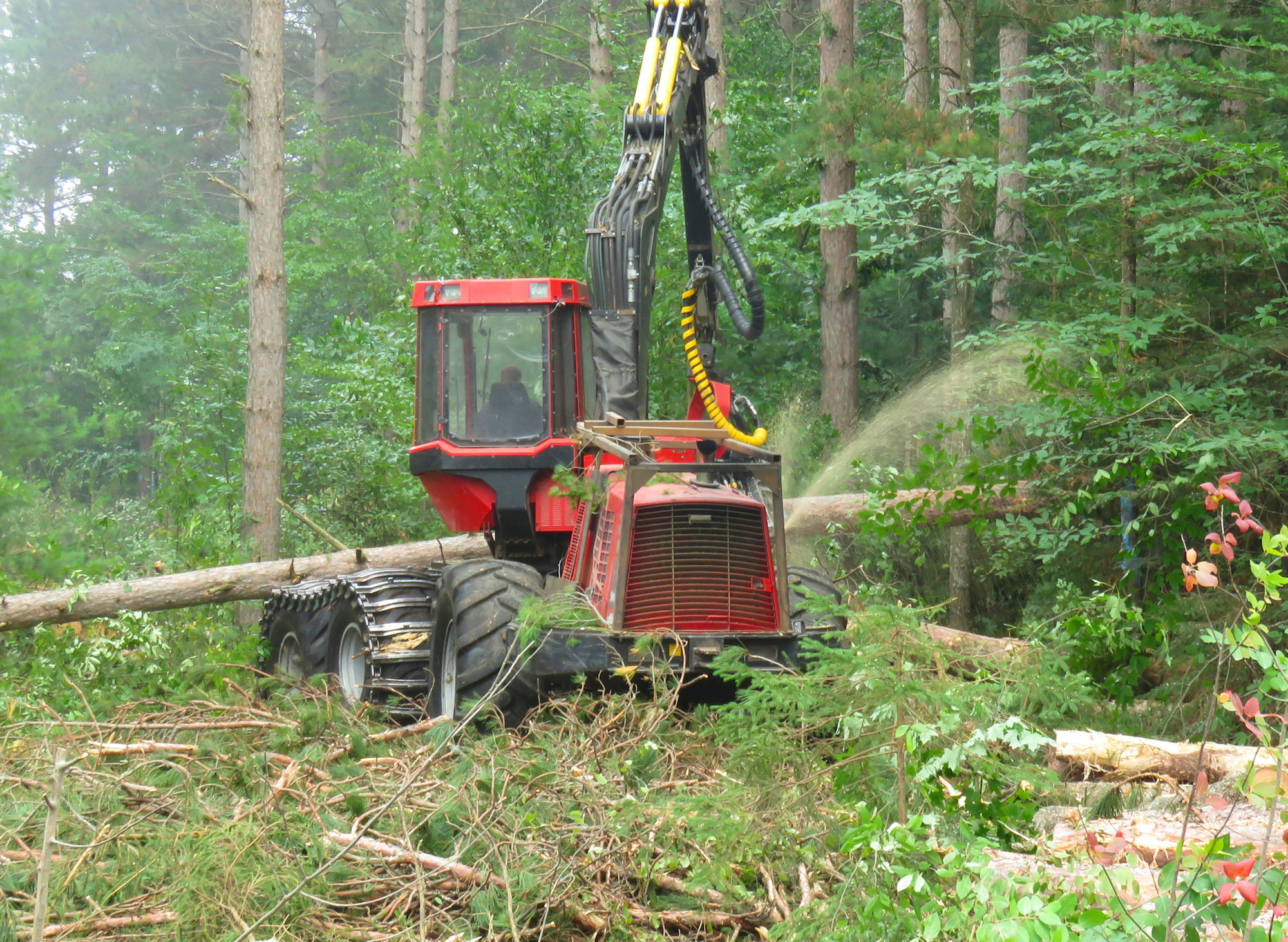Getting the Wood Out
Loggers and logging are essential to the success of our society and forest environments. Yet, like many occupations, most people are unaware of the of the job description and the people that spend their lives working in the field of logging.

Marv Evans loves working independently in the forest. He’s not much of an office guy. He never quite knows what will happen from one day to the next. If lucky, he’ll be able to operate his processor all day without a hitch. More than likely, something unforeseen will come his way. He’s prepared, though. He has to be.
A processor is a near-million-dollar machine that cuts trees into roundwood products. The computer keeps a record of species, log lengths, product classes, and other information. Of course, Marv needs to enter-in all of these data parameters. But, at the end of the day, the processor will tell him exactly how much of each product was manufactured.
Of course, Marv needs to know how to work with the on-board computer. There’s also a GPS unit that helps keep his work inside the timber sale boundary. Then, there is the machine diagnostics. A processor has more than one computer.

Marv cuts the trees and stacks logs into small piles, each pile in a product class, such as pulpwood, or bolts, or sawlogs. His brother, Michael, will follow-up later with another big machine called a forwarder. The forwarder will bunk Marv’s log piles and stack them according to product class on the log landing.
Later yet, the Junior Evans will load a truck from the log deck and rumble out of the woods to a particular mill. Junior will repeat this, delivered roundwood products to different mills.
Marv bought the standing trees from a local forestowner. The forestowner hired a consulting forester to set-up the timber sale and to help provide for future forests and wildlife habitat. Marv, the forester, and the forestowner are working together to get the job done. Right. Communication and a clear contract are essential.
Marv has also worked with the wood procurement foresters at various mills to obtain contract volume. The more mills that Marv contracts with, the more value he can deliver to the forestowner by better utilizing the harvested trees. Contract skills are important, and an accurate assessment of an often volatile market.

Logging requires a wide range of other skills, too. Already mentioned are working with people, computers, and heavy equipment. Knowing how to repair and maintain equipment is also critical; skills such as diesel mechanics and hydraulics. A logger needs good business acumen, accounting ability, and must keep up with the latest rules and regulations. Training and dedication is life-long.
Some loggers have advanced degrees and are multi-lingual. Others have been working in the woods since they were teenagers. Others, yet, became loggers as a second career. Many are involved in a variety of community affairs, just like the rest of us.
Most loggers work long days, when all the factors come together and they can. Wet weather or broken machinery can stop operations. So can many other things. The profit margins, between what was paid for the trees, and what products get sold to the mills, are often rather slim. But, it’s how business gets done. And, Marv likes his work. Especially, when he has millions invested.
Modern loggers and modern equipment resemble little from the lumberjack days of a hundred years ago, or even a couple decades ago. However, a good work ethic and smart mind are necessary. A logger needs to enjoy working outdoors and remain flexible with daily challenges.
The average age of a logger runs in the mid-50s and is growing older. Finding younger people who enjoy this kind of independent, but hardworking, profession is difficult. But hey, if it’s your thing, then it’s the best job in the world. Life can be good outside the cubicle.



 Print
Print Email
Email